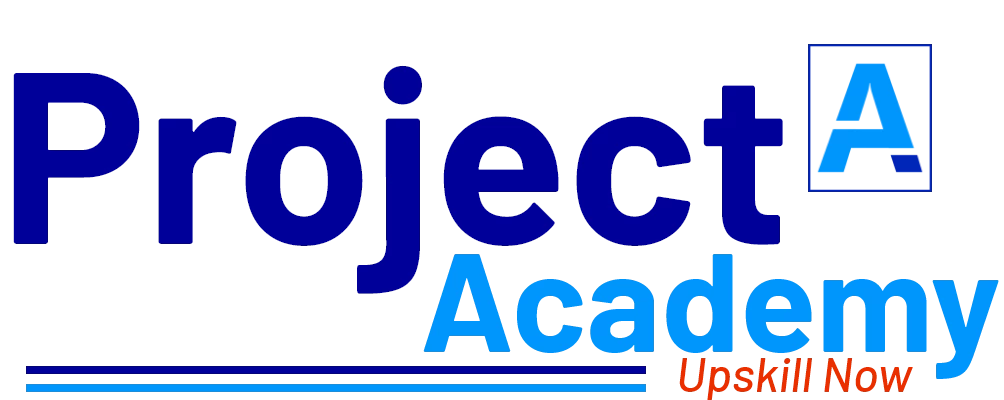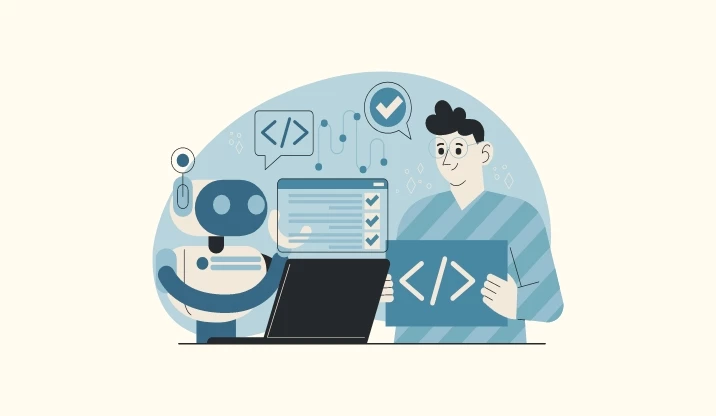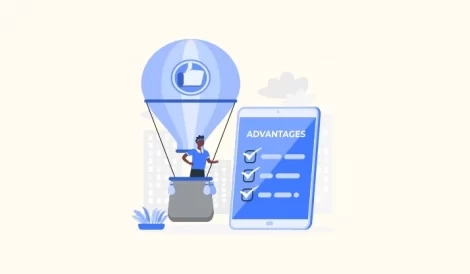Artificial Intelligence has created a stir in today’s time by transforming numerous businesses from multiple industries. The technology witnessed its fast adoption by many industries that include education, healthcare, manufacturing, finance, and many others. It has increased the demand for AI.
Many Artificial Intelligence (AI) tools and frameworks are available to implement AI apps. So, if you are keen to explore Artificial Intelligence, you need to be aware of these tools and frameworks. These tools are important for beginners as they are not able to decide which frameworks and tools they should start with.
Before discussing several tools and frameworks, let’s understand the basics.
What is AI Framework?
The Artificial Intelligence framework is a combination of a range of pre-built libraries, tools, and protocols. These are designed mainly for facilitating the development of Machine Learning models and also AI-based apps. Developers leverage AI frameworks for creating varieties of intelligent systems that include natural language processing, computer vision, and robotics.
With AI frameworks, developers can avail themselves of a range of powerful sets of building blocks that they use for building ML models even without the need to start from scratch. Developers can use various pre-built components to develop AI apps in less time without doing more coding work. It also minimizes errors.
Some popular AI frameworks are PyTorch, TensorFlow, Caffe, Keras, and many others. Each of these AI frameworks includes a unique set of features.
What are the Features of AI Frameworks?
The main purpose of using an AI framework is to simplify the development process of AI applications. AI frameworks are available with numerous features, which make them most useful. Let’s discuss here some of the features of AI frameworks.
• Data processing is one of the features of the AI framework. With the use of data processing tools, developers can clean, ingest, and preprocess data. The tool helps developers in converting data into a more suitable form. The tool includes various libraries for feature engineering data, wrangling, and data visualization.
• The AI framework includes more libraries for developing ML models. These types of libraries include various pre-built models for several common tasks including NLP, image recognition, speech recognition, and more. It also provides the most appropriate tools for model training, optimization, and validation.
• AI framework is also available with various tools that help developers deploy various machine learning models. It also includes various other tools including model serving platforms, cloud-based deployment, and more.
• Performance optimization is another crucial feature of the AI framework. The framework includes various tools for the optimization of the performance of ML models. The tool also includes algorithms for pruning, model compression, and quantization. The framework also includes the tools to optimize the execution of different models on particular hardware architectures.
Top 12 Artificial Intelligence Tools and Frameworks
Now, let’s discuss various Artificial Intelligence tools and frameworks that you should be aware of. Take a look.
1. PyTorch
As one of the open-source Machine Learning (ML) frameworks, PyTorch was developed and introduced by none other than the leading social media giant Facebook. The tool is the right option for creating deep learning models and earned huge popularity due to its flexibility and ease of use attributes.
The AI framework is popular for its computational graph that enables developers to change the network architecture on the fly. PyTorch has the largest community of users who are contributors to its development. Be it natural language processing, or computer vision, you can use this framework for various applications.
2. TensorFlow
It’s another open-source ML framework that is being developed by the leading search engine Google. It includes the capability of supporting a range of machine learning algorithms and is also appropriate for everyone be it fresher or experienced users.
You can install this framework most easily. The framework also enjoys having the largest community and is perfect to be used for various applications be it natural language processing, image recognition, speech recognition, and many more.
3. Keras
Based on Python, Keras is a high-grade neural network and the best option for beginners who wish to prototype fast and also want to do experimentation with deep learning models.
The framework provides good support for Theano and TensorFlow as backend engines and offers an easy-to-use interface for creating neural networks. You can use this framework for image classification, natural language processing, and speech recognition.
4. Scikit-Learn
Scikit-Learn is the right option for all those beginners who are in search of the famous Machine Learning library for Python. Be it regression, classification, or clustering, the frameworks offer a range of ML algorithms.
It’s an easy-to-use AI framework and provides a comprehensive set of tools for data preprocessing and also model evaluation. You can use this tool for varieties of purposes be it customer segmentation, fraud detection, or sentiment analysis.
5. Theano
If you are looking for an open-source numerical computation library for Python, Theano can be your right option. It’s the best option for creating deep learning models and offers varieties of tools for developing and training neural networks. The framework is popular for the efficient implementation of matrix operation which makes it perfect, especially for larger-scale competitions.
6. OpenCV
It’s another open-source computer vision library that offers numerous tools for video and image processing. It offers great support for different video and image formats and provides different functions for object recognition, feature detection, image segmentation, and many more.
7. Caffe
Developed by Berkeley AI Research, Caffe is another popular deep learning framework. It’s used to a wider extent in developing convolutional neural networks (CNNs) and is also popular for its quick execution time.
The framework includes numerous tools for developing and training neural networks and also provides support for both GPU and CPU computation. You can use Caffe for image classifications, semantic segmentation, and object detection.
8. MxNet
MxNet is another AI framework that is developed with scalability in mind. It provides full support for multi-machine training and multi-GPU. The framework includes numerous features including easily writing custom layers in higher-level languages. As a community-developed framework, MxNet is available with TVM support, which boosts deployment support.
9. OpenNN
OpenNN is another robust AI framework that includes numerous analytics which is suitable for both beginners and experienced programmers. It comes with a tool like Neural Designer, which is one of the most popular tools for sophisticated analytics. The tool has the capability of offering both tables and graphs to analyze the entered data.
10. CNTK
It’s another open-source AI framework that is a highly flexible, quick neural network that allows messages, texts, and also voice formation. It also brings the possibility for fast evaluation of the models of the machines while also caring for correctness and accuracy, which makes it an appropriate setting to scale up.
It includes a user-friendly and aggressive design. Apart from this, its integration with crucial massive datasets makes it a perfect choice for use for many leading brands including Skype and many others.
11. Google ML Kit
Google ML Kit is one of the most useful AI frameworks for developers. It enables them to personalize iOS and Android phones by creating personalized features. As Google’s ML beta SDK for mobile app developers, the kit enables developers to embed ML technologies with application-based APIs working in the cloud or the device.
These include numerous features including text and face recognition, image labeling, barcode scanning, and many more. Developers can also create their own TensorFlow Lite models, especially where the built-in APIs may not be appropriate for the use case.
12. Auto ML
It’s another AI framework from Google. In the year 2017, Google started using this in its search for neural network architectures. As one of the most robust and leading AI frameworks, Auto ML offers a simple graphical user interface to help developers in performing various tasks be it making the assessment, improving, or releasing models based on their data.
Developers can leverage this framework to tailor specific models for any company. The best part of this framework is it takes the benefit of Google’s research technologies for improving the speed of ML models.
Conclusion
Artificial Intelligence is expanding its horizon by leaps and bounds and also becoming highly accessible for beginners as well due to the above tools and frameworks. These tools and frameworks are the best options for those who are keen to explore and start their career in this field.
Each tool is available with its own set of features which makes it crucial for beginners to do experimentation and choose the right one that works fine for them. Leveraging these frameworks, beginners can also grab the opportunity to make their contribution to this technology.
Frequently Asked Questions (FAQs)
1. Which is the most common AI framework used?
Some of the most commonly used AI frameworks are PyTorch, TensorFlow, Scikit-learn, Keras, Cafee, and many others. You can choose the right one to use based on your needs and the type of AI apps that you want to develop.
2. Which AI framework is easy for beginners?
Beginners can use several AI frameworks including RNN, TensorFlow, Theano, PyTorch, Cafee, and many others. They can leverage these AI frameworks in the easiest way to build any AI system.
3. How AI projects can help engineering final-year students?
AI projects are helpful for engineering final-year students in various ways. It provides them hands-on experience when it comes to designing and implementing-AI based systems, improving their knowledge, and technical skills, and is good for employability prospects as well. It also improves their problem-solving capability, and boosts creativity, and also critical thinking power.





